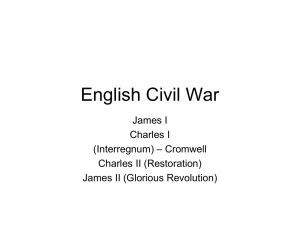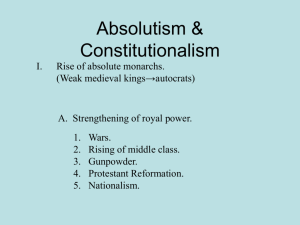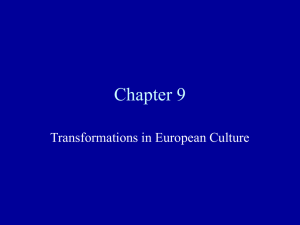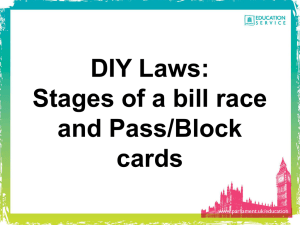The English Civil War
advertisement
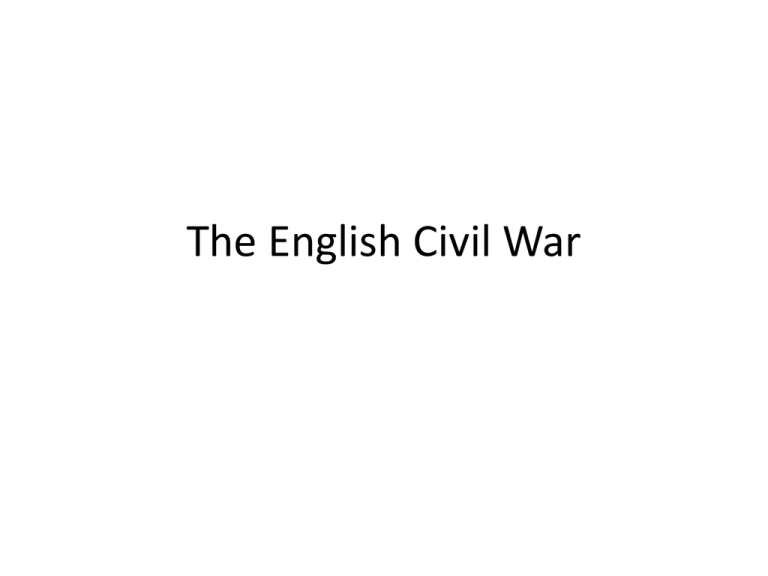
The English Civil War Agenda 1. Bell Ringer: What is an effect of Absolutist power over the people? 2. Brief Lecture: English Civil War 3. Absolutism Review 4. English Bill of Rights, 1689 5. Impact on Absolutism discussion Objectives: Students will analyze the impact of the English Bill of Rights on Absolutist Governments. Students will identify specific characteristics of Absolutist Rulers and their respective Empires. HW: Read Chapter 14 for Reading Quiz on Thursday. The Stuarts • James I of the Stuart Family takes over rule in England (already king in Scotland) • He was not popular, and Parliament refused his demands. • Charles I was no better. • He ended up taking loans and bypassing Parliament. War? • Charles I summons Parliament in 1640. • They attempt to charge him with illegal actions, 1642 he tries to arrest Parliament. • Parliament raises army, and prepares for war. The Sides! • Charles I – Supported by nobles – Anglican church, and Roman Catholics • Parliament – Bourgeois – Gentry – Puritan Dissenters • Privileged vs. a broadened aristocracy Cromwell becomes Leader? • He decided the Charles must be executed on the grounds that he was untrustworthy and attracted “ungodly” persons. • Parliament says no, so Cromwell drove out the dissenters. • Executed Charles I in 1649 • Proclaimed England a Republic. – maintain orderly government through strong personal rule (and a lot of military). Restoring the Monarchy • Cromwell dies in 1658 • Parliament is freely elected for the first time in 20 years. • Charles II becomes King, and regicide dies out. • Constitutional Government between Parliament, crown, and the people. James II “leaves” • Younger brother of Charles II. • He claimed he was above the law, and attempted to take power from Parliament. • He takes power, and attempts to force the Catholic Church back into England. • Parliament makes a deal with William, and he sails in to remove James. • James “abdicates”, (received an offer he couldn’t refuse) Glorious Revolution • William and Mary take the throne, and the coup was bloodless. • 1689, Parliament passes Bill of Rights, declaring parliamentary supremacy over the crown. • King could suspend laws, levy taxes, and raise armies with the consent of Parliament.

